"If one person stays in power for a long time, he becomes a dictator"

We use Google Cloud Translation Services. Google requires we provide the following disclaimer relating to use of this service:
This service may contain translations powered by Google. Google disclaims all warranties related to the translations, expressed or implied, including any warranties of accuracy, reliability, and any implied warranties of merchantability, fitness for a particular purpose, and noninfringement.

Highlights
- "Despite the improvement in services, the result of not getting rights and freedom is the explosion of Bangladesh."
- "If there is no election and the transition period is extended, there is a possibility that the army will come to the front."
- "We raised the slogan of executive president and executive prime minister, but if it becomes a dictatorship, there will be a problem."



Bangladesh, heading towards economic prosperity with political stability and infrastructure development, experienced an unexpected upheaval last week. Many have analyzed that Hasina, the daughter of Sheikh Mujibur Rahman, the father of the nation of Bangladesh, who made her name as a democratic warrior, had to take refuge in India after she started walking in a totalitarian style. Currently, an interim government has been formed in Bangladesh under the leadership of Nobel Peace Prize winner and economist Muhammad Yunus.

The latest ups and downs in Bangladesh, the youngest country in South Asia, the challenges of the interim government head Yunus, the political future of Hasina and her party (Awami League) and other issues including Hasina's tenure as the Nepali ambassador to Bangladesh for more than two years (2019 September to 2021 October) and the former Minister of State for Health and the second member of the Constituent Assembly story -break dr. with Vanshidhar Mishra Buddhisagar Marasini of Kantipur , Swaroop Acharya and Jagdishwar Pandey Edited part of the conversation: How do you analyze the latest developments in Bangladesh? Why did Prime Minister Sheikh Hasina have to flee the country?
Even though people got services, they were missing their rights and freedoms. The current result is its explosion. A great injustice was done to many journalists and intellectuals who criticized the government. Arrested for no reason, beaten and thrown on the road, some were even killed.
It created an atmosphere of panic. Prime Minister Hasina had to leave the country because the intellectuals were suffocated and the common people were oppressed. What this proves is that people are not only prosperous. The main reason why the movement is raging like this is the leadership trampling on people's expectations. It is bad governance. This is the result of having no faith in democratic values.
In 2014, she changed the system of forming an electoral government under the leadership of the Chief Justice. After that, the election was held on her own account. Zia, the leader of the main opposition party BNP, was jailed. That election was boycotted by the main opposition. The 2019 election was the same. However, the opposition participated in it. It was just a gimmick of elections. The last election is just a drama.
Hasina's government also tried to imprison two angelic figures like Muhammad Yunus and Fazal Hasan Awed on various charges. Aved established the Bangladesh Rehabilitation Assistance Committee (BRAC). Yunus founded the Grameen Bank. Both are NGOs. It is a great irony that such people do not hesitate to oppress them.
Lately, Hasina's profile changed from a freedom fighter to a totalitarian. How do you see it?
Within a few years of becoming an independent nation, there was a violent regression. Four people who were ruling in Sheikh Mujibur Rahman's absence were also jailed. Within a month, the group that killed Rahman went to the jail and killed them too. Along with that, there was a culture of violent traditions and tendencies. The military took over. Mujibur Rahman appointed a fourth-rate military general, Zia ul Rahman, as his chief, but he himself later staged a coup. After some time he too was killed, another mutiny ensued. Thus there is a long history of military coups.
Then General Hussain Mohammad Ersad ruled for about nine to ten years. Changed the constitution, pretended to be an election. Meanwhile, Hasina took refuge in India and started a movement in Bangladesh. Hasina has been violently attacked 22 times. She was established after a long struggle. She demanded fair elections. All the parties there agreed to it.
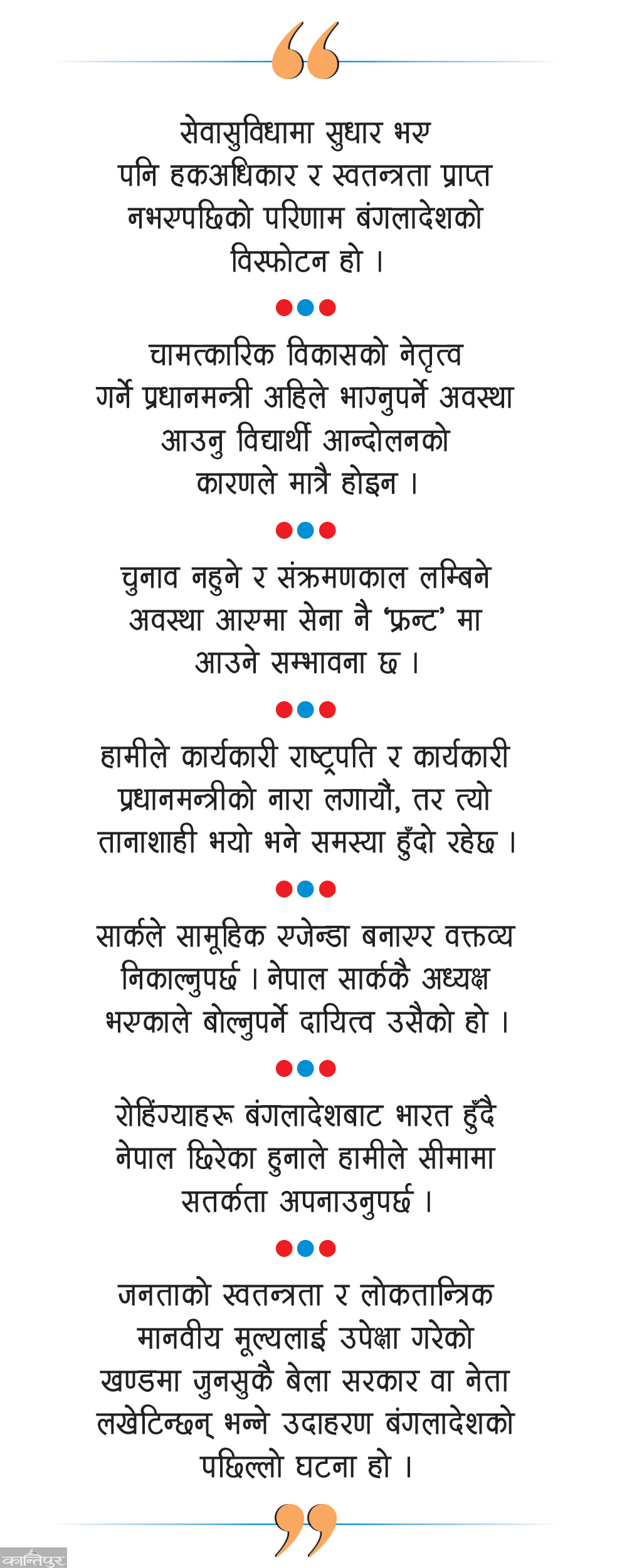 Hasina has been active in politics since becoming president of the Awami League in 1981. In the early days, she fought for the establishment of democracy in the country. After returning from exile to Bangladesh, she got involved with BNP leader and former Prime Minister Khaleda Zia. A movement in 1990 led by two leaders succeeded in displacing Ersad's military rule in Bangladesh.
Hasina has been active in politics since becoming president of the Awami League in 1981. In the early days, she fought for the establishment of democracy in the country. After returning from exile to Bangladesh, she got involved with BNP leader and former Prime Minister Khaleda Zia. A movement in 1990 led by two leaders succeeded in displacing Ersad's military rule in Bangladesh.
What are the reasons why the politics of Bangladesh has become so unstable?
After the establishment of democracy, Zia held the government power for five years from 1991 through general elections. However, in the meantime, the relationship between Hasina and Zia soured. Because of this the politics of Bangladesh became unstable. Hasina became the Prime Minister for the first time in 1996. Five years later, she was defeated by Zia. Because of this, Zia became the prime minister again from 2001 to 2006. Meanwhile, the relationship deteriorated further. The conflict between them was not limited to political competition, but began to move towards revenge.
dr. Vanshidhar Mishra, former Nepali Ambassador to Bangladesh. Photos : Angad Dhakal/Kantipur
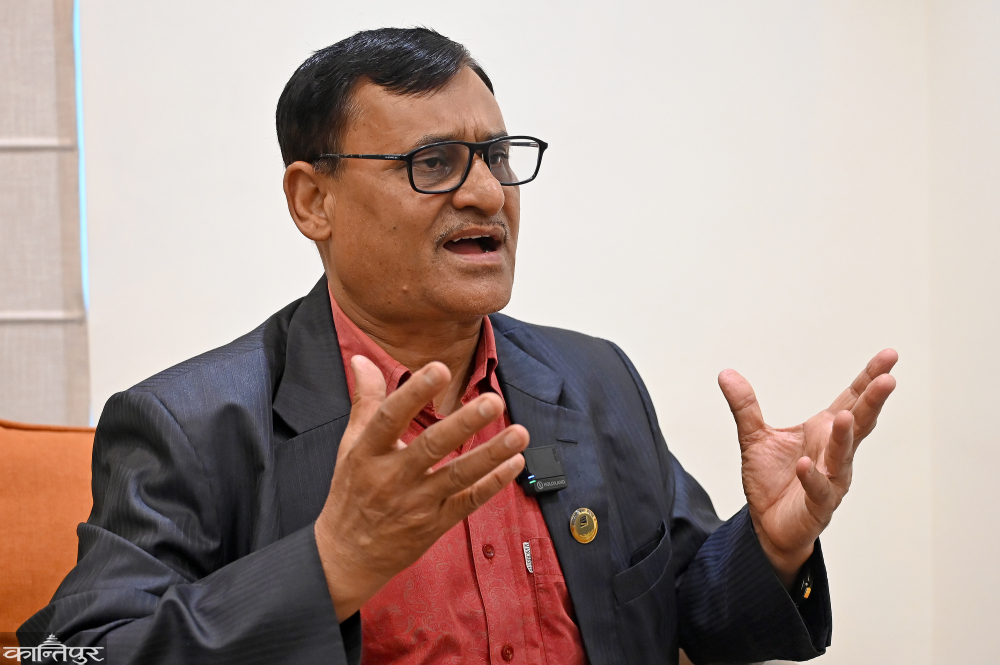 The army took over power after the scheduled elections could not be held due to protests, violence and clashes with political vendettas between the two leaders. Later, Army Chief General Mohin Uddin Ahmed appointed Economist Fakhruddin Ahmed as Chief Advisor to lead the caretaker government. The Ahmad-led government jailed Zia on corruption charges and Hasina on extortion charges. After the case was withdrawn, Hasina was released in June 2008 and Zia in September. Hasina became the prime minister after the Awami League won the elections on December 29 of the same year.
The army took over power after the scheduled elections could not be held due to protests, violence and clashes with political vendettas between the two leaders. Later, Army Chief General Mohin Uddin Ahmed appointed Economist Fakhruddin Ahmed as Chief Advisor to lead the caretaker government. The Ahmad-led government jailed Zia on corruption charges and Hasina on extortion charges. After the case was withdrawn, Hasina was released in June 2008 and Zia in September. Hasina became the prime minister after the Awami League won the elections on December 29 of the same year.
What kind of progress did Bangladesh succeed in under the leadership of Hasina?
Since 2009, she has been in power continuously. Meanwhile, Bangladesh has developed miraculously. The country that was said to be poor became the center of attraction for everyone. It became the country with the highest gross domestic product (GDP) in South Asia. Under the leadership of Hasina, there was a unique development in infrastructure. It became the second country in the world in garment exports. It also achieved great success in fish production and pharmaceutical production.
Bangladesh also became the first country to send a large number of troops to the peacekeeping force. Bangladesh also receives a lot of remittances from foreign employment. Hasina has made all-round development in Bangladesh. Metros started running. A unique bridge was built over the river Padma. After its construction, North-South connectivity has contributed to 1 percent of GDP. After ADB placed various conditions on the loan, Hasina said that she would make it from her own resources. It became the world's center of attraction for business due to the development of not only industry but all sectors. Made one of the most densely populated countries in the world self-sufficient in agriculture. There has also been an exemplary revolution in agriculture.
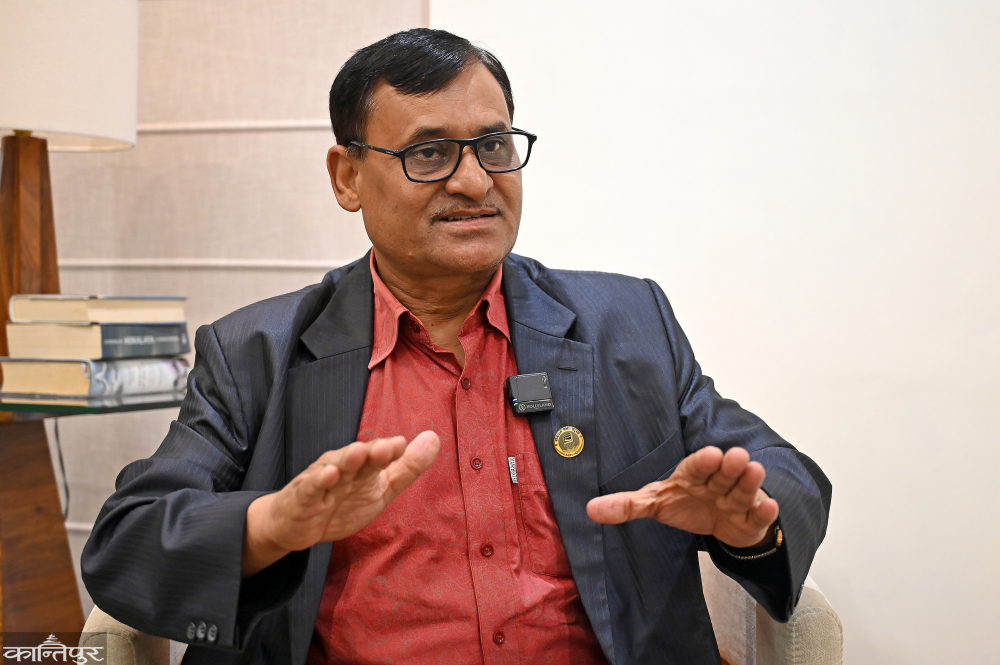 What are the reasons for the exodus? Is the student movement behind this?
What are the reasons for the exodus? Is the student movement behind this?
The prime minister who led such a miraculous development now has to flee is not only because of the student movement. It was Hasina's government that reduced the issue of giving reservation to the descendants of freedom fighters at that time. However, a case was filed in the High Court protesting the reduction and it granted a stay. After giving a stay, 45 percent of the reservation was allocated by following the court's order. After that, the movement started under the leadership of 6 students. It proved to be a spark of fire and took a huge form. Later, the Supreme Court banned the reservation, but the movement did not stop.
Bangladesh is again caught in an unprecedented political crisis. Even though Nepal does not share a border with India and China, it is the closest country. A country that fought sacrificially for language and culture. Mavlighar of Rabindranath Tagore, South Asia's first Nobel laureate. But the dark side of Bangladesh is now exposed. Bangladesh became independent after 9 months of violence in which about 3 million people died. Writers, intellectuals, scientists were killed, Bangladesh emerged after massive violence. At that time, the US Secretary of State, Henry Kissinger, commented on the rise of Bangladesh, "This country cannot succeed." This is a basket without milk. There was famine and poverty.
Sheikh Mujibur Rahman's call on March 25, 1971, so many people supported and became an independent nation. Rahman was arrested and taken away to be executed. Pakistan released him only on January 10, shortly after Bangladesh became independent. He then became the first Prime Minister. He changed the system in the middle and became the president. He was killed 4 years after assuming the reins of power in Bangladesh. On August 15, 1975, a small group of soldiers there shot and killed the entire family of Mujibur Rahman. His two daughters Sheikh Hasina and Sheikh Rehana managed to survive in Europe.
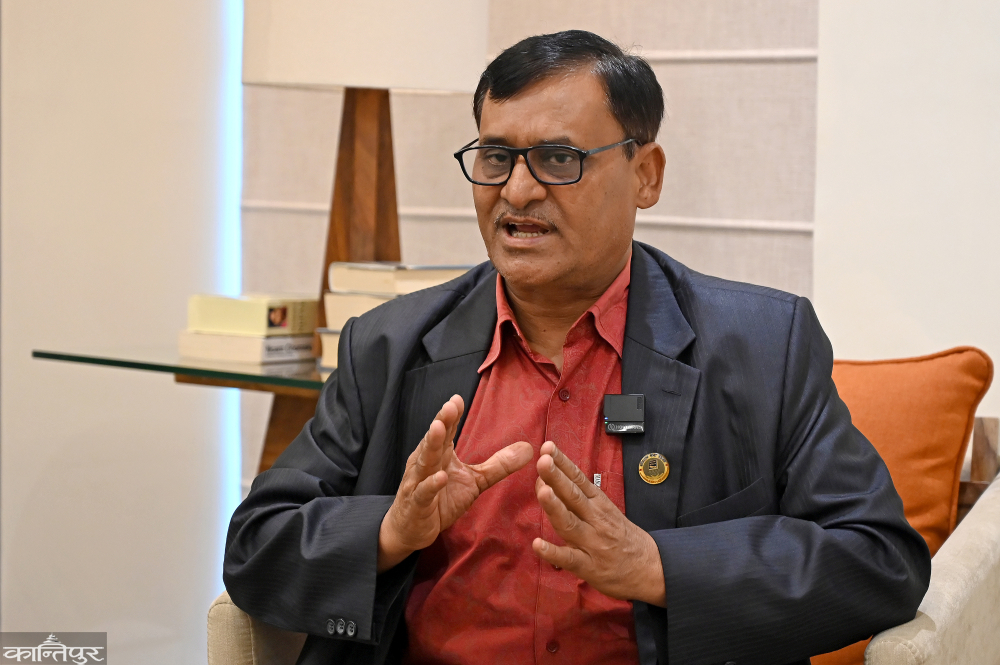 How did you find Sheikh Hasina when she was taking charge as ambassador?
How did you find Sheikh Hasina when she was taking charge as ambassador?
Anyone who met him would not think he was autocratic. As a woman I found her to be very simple, soft-spoken, very humble and inspiring. So much so that she used to cook and feed some of the guests who came to her residence. Even in the meeting with me, she spoke very poignantly about Nepal's relations. But such a good leader was surrounded by close people and friends. Personally very good, his struggle is positive and inspiring. Efforts and steps to take Bangladesh on the road to prosperity are highly appreciated. But as a ruler, autocratic style and intolerance are his negative aspects. If someone criticized, she used to see or portray them as anti-government or anti-national.
The recent situation in Bangladesh is an example of how governments or leaders are chased down in any case if they ignore the freedom of the people and democratic human values. Recently, the Hasina government banned journalists from entering the country. Corruption is also another main reason. There was extreme corruption at all levels and levels of government. It will only work if you are affiliated with Hasina's party or go through her circle.
The people of Bangladesh liked Sheikh Hasina for a long time, didn't they?
One is that she is the daughter of Father of the Nation Mujibur Rahman, so there is definitely comfort or support. Not only that, she herself has also struggled a lot. At some point, Hasina raised issues of direct concern to the people, including poverty and corruption. That's why she became popular. For some time she also did a lot of good work for the country and the people. For a decade, she is in trouble because she has followed a totalitarian style rather than good governance.
Why do you think there was a recent act of destroying his father's palace or burning the museum?
Bangladesh especially has a culture of revenge. After Hasina came to power, she made a special law in 1975 and gave death penalty to those involved in her father's murder. Likewise, on various other issues, she systematically took revenge on her opponents or critics.
Similarly, voices raised against the government should be addressed peacefully through dialogue, and suppressed by extreme abuse of government machinery or police administration. In addition, Muslim extremists like Jamaat-e-Islamic were also looking for opportunities to protest against Hasina. The main reason for that is that he did not like the Muslim extremists who gave land for Dhakeshwari temple and protected Hindus.
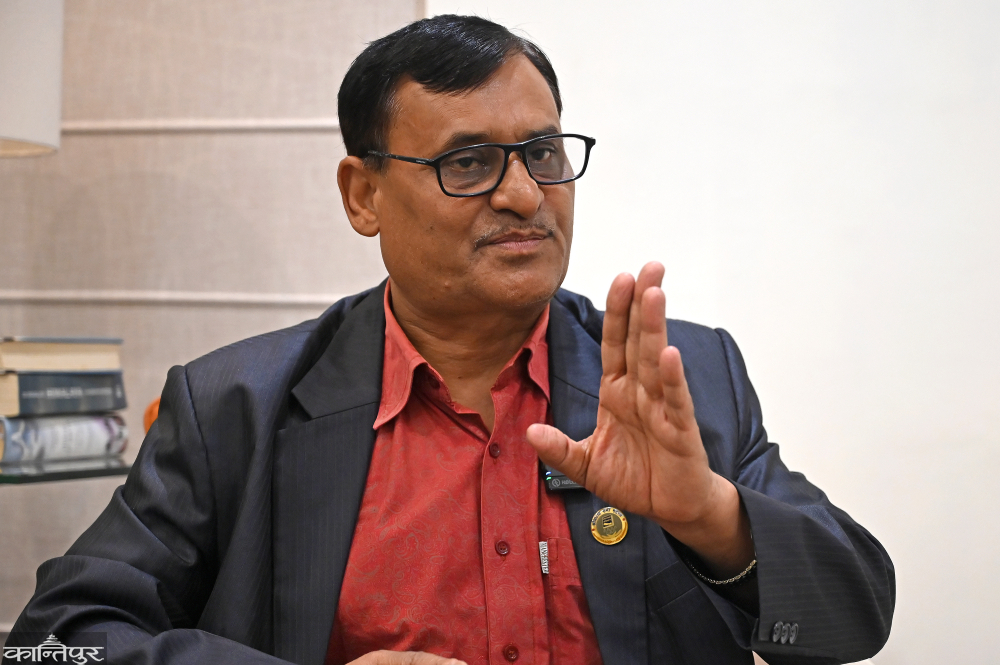 Hasina's return to politics and the political future of her party Awami League?
Hasina's return to politics and the political future of her party Awami League?
The possibility of Hasina's return to politics is very low. But the future of his party remains. The immediate party seems to be under pressure. When the problems of economic growth, unemployment etc. start to rise, people remember the economic progress and prosperity of the heyday, it is almost certain that the Awami League will be gradually sought. In that situation, the future of the party seems to be determined by how the Awami League moves forward.
Hasina's son Sajiv Wajed has also said that he will join politics. How do you see his political future?
It cannot be said that his son has no chance in politics. But there is no possibility that he will enter mainstream politics soon. Earlier, he only worked as Hasina's science and technology advisor. Even though Wazed is not active in mainstream politics, he is not very connected with the people. Moreover, he is not as popular in the country as Sheikh Hasina. But if the Awami League is reorganized and the people prefer it, he can succeed in politics in the future.
Can interim government chief Muhammad Yunus fulfill the responsibilities of peacemaking and elections? How effectively will the government under his leadership work?
Yunus's challenges as the head of the interim government are many. First of all, Yunus should introduce the security agencies and stop the attacks on the minorities and remove the fear and maintain peace and security. Apart from that, no matter what happened in the past, people should be reassured that violent incidents, inhumane and undemocratic actions will not be allowed in the future. Another main challenge for him is to restore the country to a democratic system by holding quick and fair elections in a country like Bangladesh, which has a history of not having elections.
Apart from that, it is also his responsibility to protect the achievements of the country. It is also a challenge for him to manage the country's economy and prevent the economic growth rate from falling. Likewise, he should maintain the foreign investment environment, keep the garment industry running and convince the investors, consumers and workers involved in the remittance sector to stop actions that are or may be against the national interest.
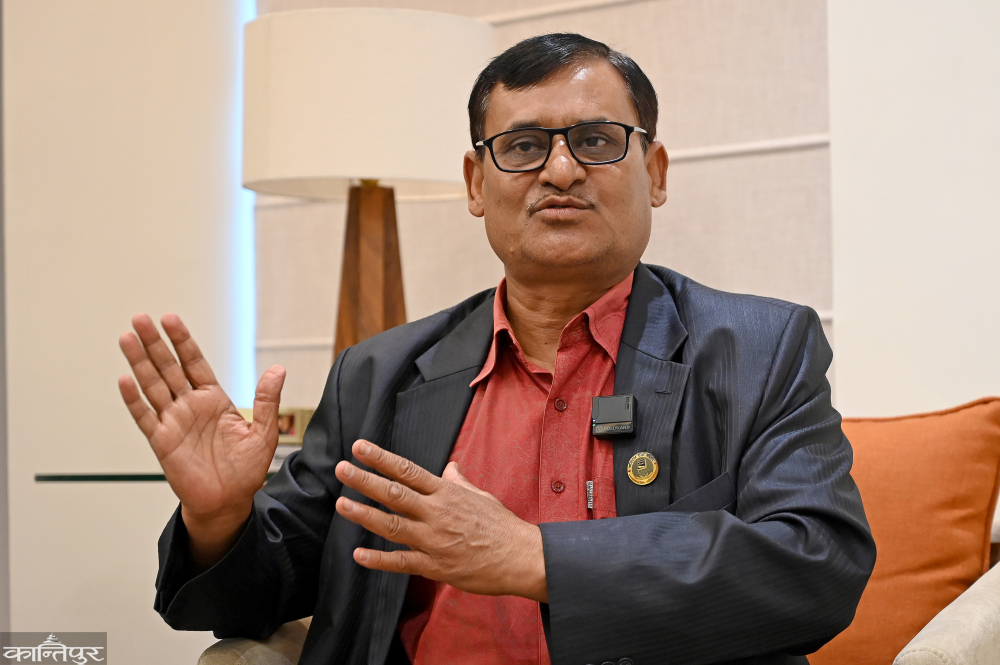 What is the probability that the Bangladesh Nationalist Party (BNP) will win the next election and Khaleda Zia will return to power?
What is the probability that the Bangladesh Nationalist Party (BNP) will win the next election and Khaleda Zia will return to power?
Khalida Zia is also not that popular. Even Zia was unable to maintain good governance during her five-year tenure as Prime Minister. But even if it does not get a majority in the upcoming elections, it seems likely that BNP will be the first party and form a government together with religious extremist parties.
Is the 'Begum War' (war between Hasina and Zia) over in Bangladesh?
Especially in Bangladesh, the 'Begum-War' should have ended earlier. But the possibility of Hasina's return is very low and Zia's health condition means that the conflict between the two Begums is almost over.
How do you see the political future of Yunus?
Yunus has political potential. He had already announced the formation of a political party. Yunus, who is already famous, can establish peace in the country and return the democratic system to the country through elections. He can be established in politics in the future.
The interim government could not fulfill its responsibilities and the transition period is prolonged, what is the possibility of a military coup?
is the same military 'coup' in Bangladesh. If there is no election and the transition period is extended, the army is likely to come to the front. Even now, the way the army celebrated by firing guns after Hasina's exit, it sent a message that the army has not taken power for a long time. Only in terms of people's feelings, the army has not come forward now.
Since independence in 1971, there have been several transitional governments in Bangladesh. Are there any specific reasons for that?
This is essentially a battle between progress and regression. People's aspirations are always progressive. The other side is the struggle between the two as they come forward with the demand that the tradition should remain. At present people have become conscious. In this way, because no one wants to compromise on democratic values and good governance, there are occasional protests and a transitional situation.
What effect can the latest political developments in Bangladesh have on world geopolitics and especially on South Asia?
This is a very important issue. In South Asia, what happened in Bangladesh has a huge and direct impact. It has an impact in the world as well, especially in South Asia. India has the most influence in South Asia. Before 1947, Bangladesh was a part of India. Bangladesh gained independence from the then West Pakistan with the help of India.
After the Indian army was completely pushed into Bangladesh, the Pakistani army finally surrendered. Especially that surrender was done before the Indian Army. Because of this, the relationship between India and Bangladesh is very important. The border between India and Bangladesh stretches over 4,000 km. If you leave 272 km with Myanmar, there is a border with Bangladesh. It was very influential. Because India and Bangladesh have the same culture, dress, relationship, family, marriage, etc. and so on.
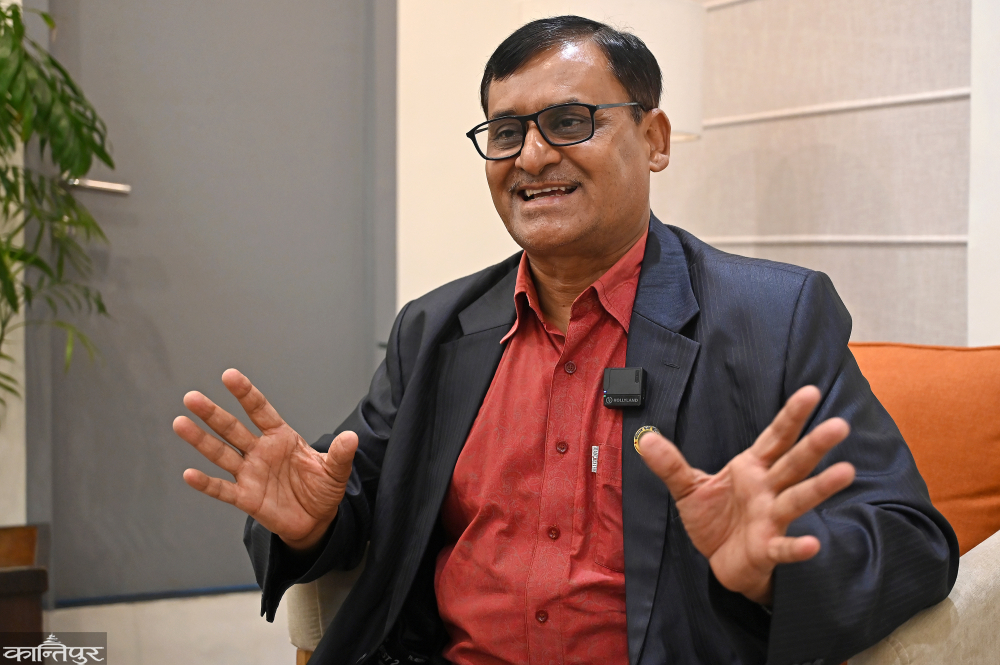 India's interests are intertwined with Bangladesh. Hasina maintained a balanced relationship with India. China was also given a lot of 'space'. But his closeness to India was remarkable. There can be no doubt about that. What she had done to India was that it would have taken a long time for India to reach the seven states of the North East. He had to go around for a thousand kilometers. Hasina changed it from one to one and a half hundred kilometers both by water and land.
India's interests are intertwined with Bangladesh. Hasina maintained a balanced relationship with India. China was also given a lot of 'space'. But his closeness to India was remarkable. There can be no doubt about that. What she had done to India was that it would have taken a long time for India to reach the seven states of the North East. He had to go around for a thousand kilometers. Hasina changed it from one to one and a half hundred kilometers both by water and land.
provided buses, trains etc. to go by land. This reduced the distance from West Bengal to Tripura to less than 150 km. Similar facilities were provided in other states as well. Eased the cargo. Hasina's role was also important in other important issues. The issue of Teesta, Ganga rivers still remains. Hasina made the border issue historic and put an end to the border issue with India. No matter what is said to Hasina now, she has settled the issue which has not been resolved since 1947. She increased four hundred square kilometers of land in favor of Bangladesh.
The number of asylum seekers in India seems to have increased due to the incidents in Bangladesh. Are you interested in what will happen on the Indian side in Bangladesh?
India wants there to be peace and security, not to have problems in its interests. Now we have to talk about Nepal, we are closer to Bangladesh than Bhutan. Bhutan is the first country to give international recognition to Bangladesh. We became the seventh country. Current events also affect us. This effect is manifold. One is the impact on the trade, business, education exchange that is happening in the interest of both our countries and now taking a new leap in energy and other fields.
Hydroelectricity was in the process of selling 40 megawatts of electricity, which has been postponed due to current developments. When I was ambassador to Bangladesh, there was a conversation to export 11,000 megawatts of electricity from Nepal to Bangladesh. I have informed the Nepal government about that in detail. Similarly, by advancing the passenger motor vehicle treaty between BBIN (Bangladesh, Bhutan, India and Nepal), there has been an obstacle in advancing issues such as the ability to travel from one country to another by bus and car, exchange of cargo materials, etc. Which would have helped Nepal leap forward. It reached the final stage and now it has come to a standstill.
PTA (Professional Trade Advance) with Bangladesh needed to be on our side. They also agreed. Because there are so many other taxes that 97 percent of our goods are charged. We moved forward to remove it and make it equal. Doing so would have benefited us a little. Bangladesh had a PTA with Bhutan. Now the second was to be with Nepal. But now it has come to a standstill.
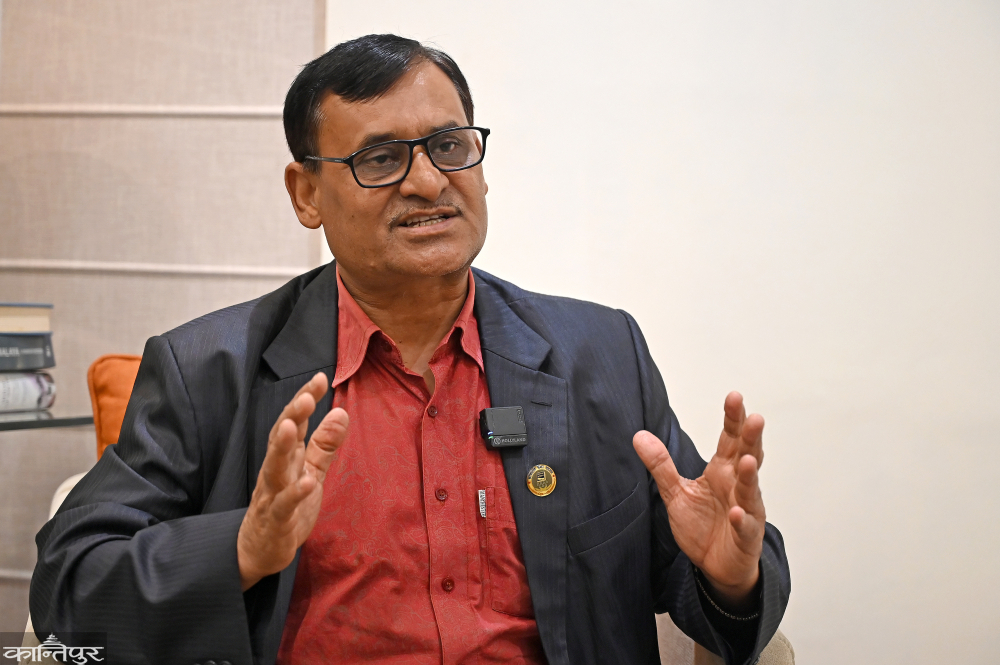 Apart from this, Nepal has two more important interests. Even now, 4000 Nepali doctors are doing internship in Bangladesh. Students are coming to Nepal. But few Nepalis doing internship and working in various international organizations in Bangladesh are concerned about security.
Apart from this, Nepal has two more important interests. Even now, 4000 Nepali doctors are doing internship in Bangladesh. Students are coming to Nepal. But few Nepalis doing internship and working in various international organizations in Bangladesh are concerned about security.
Next, Nepal's border with India is open. If India shows generosity and opens the border, people can come to Nepal from Bangladesh as well. If Hindus are oppressed in Bangladesh, India now has a Hindu government, India will do something. On the other hand, even if the Bangladeshi army starts cracking down on the oppressors, they may escape through India. Since the Rohingyas have entered Nepal from Bangladesh through India, we have to be vigilant at the border as well. That is why we should be neutral about the Bangladesh incident.
What lessons can Nepal learn from the Bangladesh incident?
The incident of Bangladesh has shown that if we focus only on one-sided development and do not pay attention to good governance, it will fail. After coming to power, democratic values have been trampled by the leadership. You should not do that trampling, you should learn the lesson.
There should be no interference with fundamental rights, including periodic and fair elections, the right to speak, to assemble peacefully and to hold events. When a problem arises, we should move towards a peaceful solution. Work should be done according to the wishes of the people. Nepal should also think about this. Our despair is unemployment.
If one person stays in power for a long time in the world, it is a dictatorship. A person should be in power for only two terms. On the other hand, we raised the slogan of Executive President and Executive Prime Minister, but if it becomes a dictatorship, there will be a problem. So we need to think about this matter.
India has not yet said anything about the Bangladesh incident. What could be the future role of India?
India is trying to speak a little indirectly, so that there is peace and security in Bangladesh. That is diplomatic practice. Because no one has the right to interfere in internal affairs. India is currently on a 'wait and see' strategy. Will speak when the time comes. For now, the Indians are putting pressure through various means to ensure that there is peace and security and that the minorities are not attacked. Also, I understand that they are trying not to affect Indian interests.
Nepal is the chairman of the South Asian Association for Regional Cooperation (SAARC). What can be its role in the current situation?
Compellingly, Nepal is still the chairman of SAARC. As the chairman, Nepal needs some role. As a balancing act, at least the members of SAARC should discuss the issue and issue a press statement. SAARC should make a collective agenda and issue a statement on issues such as peace and security in Bangladesh, protection of its citizens, protection of achievements, etc. After becoming the chairman of SAARC, Nepal should speak about what needs to be said.
After South Asian country Sri Lanka, the head of state/head of government of Bangladesh had to flee from the country. What is the main reason for this?
This problem has arisen because of not being able to work according to the wishes of the people. The situation in South Asia is not a good sign due to the Afghanistan incident and subsequent political upheaval in these two countries. So we all South Asian countries should work together for common interests. This is the need of today.
 प्रकाशित : श्रावण २७, २०८१ ०८:१९
प्रकाशित : श्रावण २७, २०८१ ०८:१९

 २२.१२°C काठमाडौं
२२.१२°C काठमाडौं














